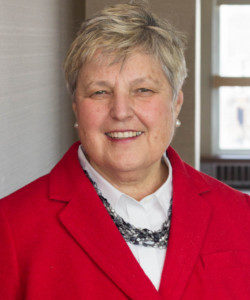2023 Research & Policy Teams
Our fourth cohort of interdisciplinary Research & Policy Teams have been formed and funded. Please read about them below.
1) Racialized Harms of Family Separation: Needs Assessment to Inform Treatment and Policy
Forced displacement is at an all-time high. More than 30 million displaced persons are classified as refugees or asylum seekers. Currently, the average asylum case in the United States is pending for more than four years. These delays are a product of a racist system designed to exclude non-white immigrants. Asylum case delays cause prolonged family separation, a stressor associated with long-lasting negative mental health consequences for migrant parents and their children in their home countries. Moreover, other harmful policies have been enacted that lead to prolonged family separation (e.g., there is no family reunification pathway for people with Temporary Protected Status, the Haitian Family Reunification Parole Program has not resumed operations, despite a reversal of the program’s termination in 2021). Despite the scale of these problems, these families remain invisible to the public, their suffering silenced even as it is amplified by policies that use family separation as a tool for political gain. This project uses participatory methods to a) bring to the public asylum seekers’ narratives to motivate political action to dismantle racist policies leading to family separation, b) inform development of a mental health intervention to address mental health consequences associated with family separation, and c) inform policy reform priorities and advocacy strategies.
Meet the Team:
-

Resham Gellatly
Co-Principal Investigator
-

Joelle Taos Taknint
Co-Principal Investigator
-

Nuha Alshabani
-

Jessica Chicco
-

Luz Marilis López
-

Rudra Darai
-

Carmen Rosa Noroña
-

Lin Piwowarczyk
-

Sarah Betancourt
-

Ivys Fernández-Pastrana
-

Jacqueline Kelley
2) Residential Addiction Treatment Programs are Hostile Environments for Black Patients, and Policy Changes are Urgently Needed
Research by our group and others has identified substantial barriers that confront Black people who have substance use disorders when they seek treatment. Residential treatment settings, in particular, are often perceived as hostile due to their punitive and rigid policies, which mimic carceral settings. This problem is exacerbated by the presence of systemic racism within the healthcare and addiction treatment systems.
To address this issue, we advocate for implementation of new anti-racist policies that foster a supportive environment for recovery. These policies should focus on helping patients recognize and utilize their own strengths, replacing punishment with positive reinforcement as the primary motivator for healthy behaviors, and empowering patients to shape their own treatment trajectory.
Our interdisciplinary team will develop model anti-racist operational policies specifically tailored for residential addiction treatment programs. These will be based on our previous research on how to change addiction treatment to be more appealing, effective, and equitable for Black patients, plus an extensive review of existing literature. We will then collaborate with the leadership, staff, and patients of BMC’s residential addiction treatment program in Brockton to refine and pilot these policies. By involving all stakeholders, we can ensure that the policies are effective, culturally sensitive, practical, and responsive to the needs of Black patients. Finally, we will introduce the policies to other residential treatment programs for further feedback, piloting, and refinement.
Ultimately, the implementation of these model anti-racist policies has the potential to transform residential addiction treatment programs into inclusive and empowering spaces that promote successful recovery for all patients, particularly Black individuals who have historically faced significant barriers within these systems.
Meet the Team:
-

Miriam Komaromy
Co-Principal Investigator
-

Phil Reason
Co-Principal Investigator
-

Corinne Beaugard
-

Elizabeth Addison
-

Avik Chatterjee
-

Daneiris Heredia-Perez
-

Christina Lee
-

Craig McClay
-

Tracey Weeden
3) Circling in on Solutions: Dismantling Racism in Breastfeeding Support in Baby-Friendly Hospitals
In the U.S., compared to white birthing parents, 15% fewer Black birthing parents initiate and continue breastfeeding. Over the past 40 years, adoption of the World Health Organization’s Baby-Friendly Hospital Initiative—which consists of 10 hospital-based breastfeeding support practices –has led to substantial increases in breastfeeding globally. However, in the U.S., racial disparities in breastfeeding persist. To help address this gap, we surveyed 350 birthing parents from two Boston-based Baby-Friendly hospitals about their receipt of breastfeeding support within 2 weeks after birth. As hypothesized, our findings confirmed that (i) racial disparities in breastfeeding support practices exist; (ii) these disparities vary by hospital; and (iii) racism and racial discordance with staff impact breastfeeding support.
Based on our findings, we are investigating racism in breastfeeding support through interviews with Black birthing parents and hospital staff, engaging community breastfeeding professionals (e.g. Black doulas, WIC counselors, Baby-Café leaders), and holding community conversations to gain wider perspectives. We will channel findings into specific policy recommendations, including the first international clinical protocol on how to address disparities in breastfeeding among marginalized and minoritized populations globally.
Meet the Team:



